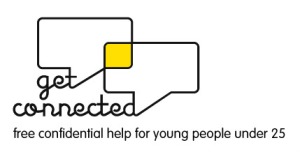Today is the International Day of Charity, it has been established with the objective of “sensitizing and mobilizing people, NGO’s (non-governmental organisations), and stakeholders all around the world to to help others through volunteer and philanthropic activities”.
According to the United Nations “The date of 5 September was chosen in order to commemorate the anniversary of the passing away of Mother Teresa of Calcutta, who received the Nobel Peace Prize in 1979 “for work undertaken in the struggle to overcome poverty and distress, which also constitute a threat to peace.””
More information about the International Day of Charity can be found here on the United Nations website.
You can take part in the International Day of Charity any day of the year just by volunteering or taking part in social action. If you are aged 16 – 17 you can take part in NCS, this is a great opportunity for you to meet new people, have fun and do something good at the same time. My last articles cover what a group of young people in Bridlington did as part of the ERVAS NCS programme. If you would like to sign up to NCS visit www.ncsflt.co.uk.
If you’re aged between 16 and 25, and you have a positive message that you want to use to inspire others, then you can take part in Fixers. They will help you do just that, whether it comes from your own personal experiences, or it’s just something you feel passionate about, you can use posters, leaflets, films, stage your own events, or even star in your own music video to get your message across. The best part about Fixers is that they reach every single postcode in the UK and they cover a wide range of topics. To find out more about Fixers visit www.fixers.org.uk.
There are also a range of other national organizations that you can volunteer for such as Get Connected. Get Connected is the UK’s free, confidential and multi-issue helpline service for young people under 25 who need help, but don’t know where to turn. They are currently looking for people to become digital connectors, you can find out more about this great opportunity on their website here: www.getconnected.org.uk/volunteer.
If you would like to find a volunteering opportunity near you, you can contact your local Volunteer Centre, they can help you to find volunteer opportunities that are right for you.
If you already volunteer why don’t you share your social action story with the #iwill campaign on twitter @iwill_campaign or make a pledge on their website www.iwill.org.uk. Or take part in #GivingTuesday (the first Tuesday of December every year) www.givingtuesday.org.uk.
Check out this video by me, that shows why you should volunteer, it is also available on the Devan Group website www.devangroup.co.uk.
